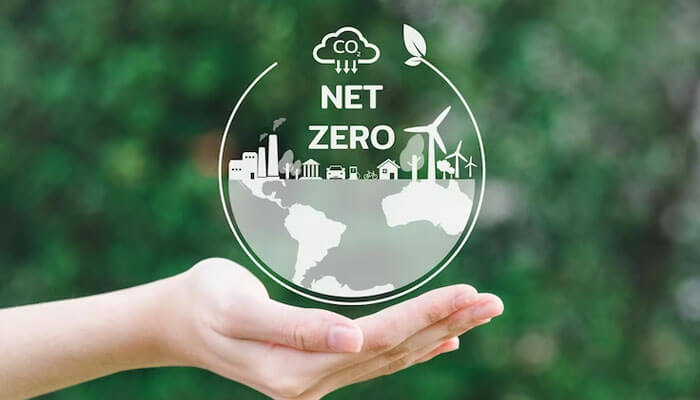China, India, Indonesia, Japan, and South Korea are five of the top ten polluters in the world, and the Asia Pacific region is responsible for about half of all greenhouse gas emissions worldwide. As one of the most climate change-susceptible regions, it is already experiencing high heatwaves, severe flooding, and rising sea levels in its towns and nations. According to regional research conducted by CDP, a non-profit organization that assists businesses and cities in disclosing their environmental impact, only 8% of enterprises in the Asia Pacific region had set a net zero objective in 2021, despite heightened awareness of local weather concerns.
A strong commercial case exists for carbon reduction and investment in a sustainable society, weather experts and corporate leaders tell Future Planet ahead of the BBC’s Biodiversity in Business Conference in Singapore. Companies should worry about net zero not just because it addresses climate change.
According to Abhas Jha, head of climate change and disaster risk management at the World Bank, “the big move away from fossil fuels will present big opportunities and hazards [for companies]”.
According to James Bullock, director of energy and sustainability at Microsoft Asia, opportunities involve lower operational costs, the capacity to draw long-term investment, and a skilled workforce.
Businesses that prioritize net zero “are already benefiting from improved sales, preferred ratings, and favorable investment terms from customers, lenders, and shareholders,” the author claims.
By 2030, Microsoft wants to have a net-zero carbon footprint. It has promised to take out of the atmosphere by 2050 all of the carbon the business has released since its founding in 1975, whether directly or through the use of electricity.
The internet giant has created an internal carbon levy that requires business divisions to pay for emissions related to their use of electricity and air travel in order to reach these lofty goals.
The money raised is put towards projects that promote sustainable energy, fuel efficiency, and carbon offsetting.
Businesses that opt not to aggressively advance their zero net plans “fear being left behind,” says Esther An, the chief sustainable development officer of City Developments Ltd in Singapore, which has been awarded the most environmentally friendly real estate business.
An asserts that climate risks are financial hazards. Investors are paying more attention to how businesses set goals and disclose the emissions pathways they will use to reach those goals.
Hence, she argues, businesses with excellent sustainability credentials will have much easier access to long-term capital.
Growing worries that businesses are misusing environmental terms like “emissions reduction” to appear more sustainable than they actually are have mirrored the surge in excitement for climate responsibility.
Why do “bio” and “green” don’t imply what you believe?
“Companies and financial institutions have started to scale up their desire for higher-quality disclosure data sources to meet [these] issues,” says Chen.
According to Bullock, Microsoft has invested in new technologies that will cut emissions and has reduced its energy consumption by 20% thanks to access to reliable, accurate data.
Bottom Line
The impression that sustainable activities are more expensive persists, according to An. Yet, businesses are beginning to realize that accomplishing climate targets is a “investment, not an expense.”



